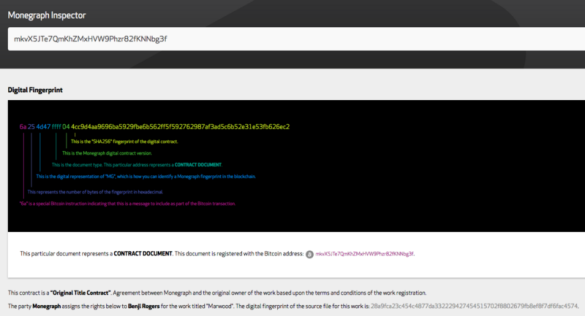Less than 7 weeks ago, a small and underfunded but dedicated team started work an app that will apply blockchain technology to the music industry, and establish a globally distributed database of music rights via an open source architecture. Today, founder Benji Roger announced that a first public alpha iteration will be available prior to August 22.
Benji Rogers, PledgeMusic & Dot Blockchain Music founder, writes: “ The best analogy I can think of to describe what the Dot Blockchain Music Projects Protocol will do is to compare it to email … What will be released late this month will be our first stab at a set of the rails upon which much of the digital music trains will be able to run. A way of working with the raw data of music that will allow for not only the birth of a globally distributed database of ownership rights, but also the trains and engines that will allow fast and fair commerce to scale for all who participate in the system.”

“Much like I imagine the BitCoin Blockchain and other systems that are open sourced and collaborative have done before us, the Dot Blockchain Music Project has been “Growing Up In Public.” Personally this is the first time that I have ever been involved in building a product out in such an open and public way, and it is equally both terrifying and amazing. From the embryo of an idea to what I would call its current awkward toddler phase as it gets ready to walk, I could not be more grateful to my teammates, the engineers and designers, and all of my fellow music industry friends from whom I learn more and more each and every day for all that they have brought to the project.”
Source: Hypebot, 8/15/16


